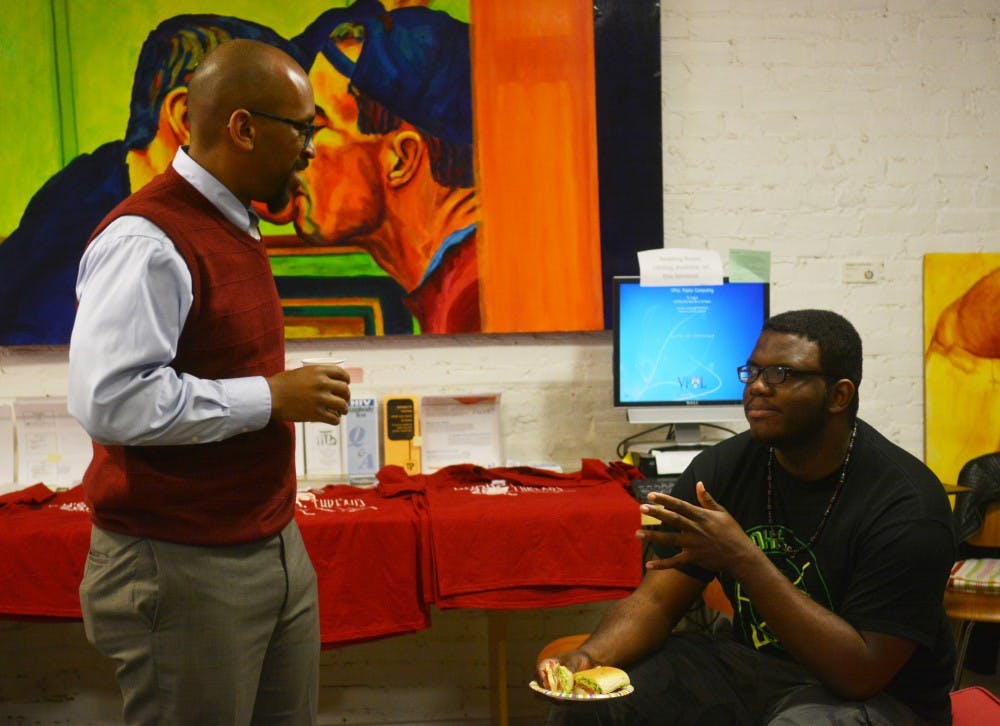What makes Penn valuable is that it doesn’t admit anyone, Sean Vereen said. The school was proud to announce in spring 2014 that the admissions rate had dipped below 10 percent for the first time, to a record low of 9.9 percent.
It was a mark of the exclusive meritocracy at work.
But a meritocracy is not fair, said Vereen, president of Steppingstone Scholars, an organization that helps minority students overcome inequalities in education to get to college. It’s not fair, he said at a United Minorities Council talk on Nov. 11, because it’s a system that rewards achievements that those with privilege can accomplish and those without — such as those part of the black, Latino, Native American and other underrepresented minorities — will find much more difficult to do .
Vereen and the other speaker at the UMC talk, English professor Herman Beavers, also said that Penn students can push more to address some of this inequality.
“Just because you get to sit down with President Gutmann in a 5B meeting” — the 5B are a coalition of underrepresented and minority umbrella groups — and “have nice informed conversations across the boardroom table, it doesn’t work,” Vereen said. What does work, he implied, is direct action. “That’s the whole point of having this time.”
“You guys have much more power than you think,” Beavers said. “You guys can shut this place down tomorrow.”
The inequality stems from situations like this: of about 100,000 black students who had taken the SAT, only 8,000 had scored above a 1200 in Verbal Reasoning and Math combined, Vereen noted. That 1200 marks the bare minimum to attend a school like Penn, he said. But college admissions officers also look at extracurriculars and personal development activities like volunteering or starting a nonprofit — things that require time and resources, which many minority students do not have. This all combines to make it harder for these students to win in the “meritocracy.”
Breanna Martin, a College senior and a former UMC board member, agreed with this critique, saying there’s a “stagnation” which comes out of “feeling like since I was privileged enough to earn this seat at the table, I should cooperate” because students in the past had fought hard to establish these meetings with the president.
In her time on UMC board, some people felt “you can only get a small piece at a time, and you can’t say these are 20 problems, you have to say, ‘Here’s one tiny problem and we have to chip at it until the hole is giant in 50 years,” she added. “But there are a lot of people who are trying to push that door.”
In response to criticism, current UMC chair and College senior Reggie Stewart acknowledged that activism on campus could go further. However, he believes UMC still does good work. “We do get a lot done. ... A lot of what we do is to talk to administrators and voice the opinions of our community.”
During the conversation, Beavers stressed that it is important for minority students at elite institutions like Penn to not act as gatekeepers — people who keep their accomplishments exclusive because they want to keep their special status. “If you guys want to protect how special this education is, and be gatekeepers, then nothing can change,” he said to the students in attendance.
What people should do, Beavers said, is go back and help people “over the wall.”
“I’m going to stand in the door as wide as possible to so that everybody can come in,” he said. “I want as many kids from West Philly High School as we can get.”



